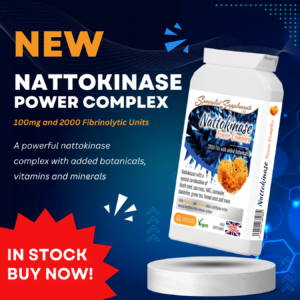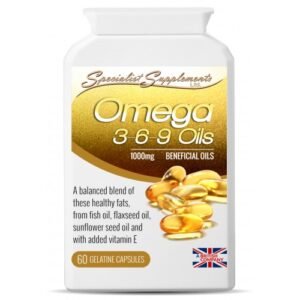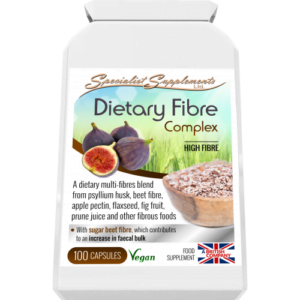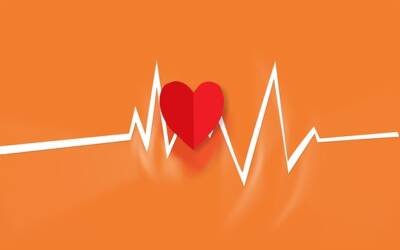Guide to the best supplements for heart health and Maintaining cardiovascular health is paramount for overall well-being, and while a balanced diet and regular exercise are fundamental, certain supplements can complement these efforts to support heart health. Always check with your doctor before adding any supplements to your diet, just to be safe and make sure they fit with your health goals. Here is a guide to some of the best supplements for heart health:
### 1. Omega-3s, like EPA and DHA found in fish such as salmon, slash triglycerides and tamp down inflammation to boost heart health—don’t skimp on them or consider supplements if your diet falls short.
Omega-3 fatty acids, particularly eicosapentaenoic acid (EPA) and docosahexaenoic acid (DHA), are renowned for their heart-protective properties. Packing a punch with omega-3s, fish like salmon, mackerel, and sardines can significantly cut triglyceride levels, ease inflammation, and reinforce cardiovascular well-being. If you don’t consume enough fatty fish, consider fish oil supplements. Krill oil is another option that provides omega-3s along with antioxidants like astaxanthin.
### 2. **Coenzyme Q10 (CoQ10):**
Coenzyme Q10 is a naturally occurring antioxidant that plays a crucial role in energy production within cells. But CoQ10 is especially plentiful in the heart. Studies show that taking CoQ10 supplements might help people with heart problems. This is because, as we get older and take some medications, we make less CoQ10. So supplements could be helpful. CoQ10 levels may decrease with age and certain medications, so supplementation could be beneficial. It’s worth noting that statin medications, commonly prescribed for cholesterol management, may deplete CoQ10 levels, making supplementation even more relevant for those on statins.
### 3. Magnesium, a powerhouse mineral essential for over 300 body processes like heart health and muscle function, may also help lower blood pressure—a bonus if your diet’s low on greens and nuts.
Magnesium, a key player in our body’s chemistry, takes part in over 300 vital reactions that keep our hearts beating steady and muscles moving right. It helps keep blood pressure in check, makes sure your heart beats steadily, and lets your muscles and nerves work right. Some studies hint that taking magnesium supplements might help lower blood pressure a little. But more research is probably needed to know for sure. So while getting enough magnesium from food like nuts, seeds, and leafy greens is good, supplements could help too if you don’t get what you need. Magnesium can be obtained from dietary sources such as nuts, seeds, and leafy green vegetables, but supplements may be considered if dietary intake is insufficient.
### 4. For centuries, garlic has boasted potential health perks—chief among them, cardiovascular support through allicin, its anti-inflammatory ace that could help keep blood pressure and cholesterol at bay.
Garlic, a staple in many kitchens, isn’t just for flavor—it’s packed with allicin that might just give your heart health a boost. Garlic packs a punch with allicin, which fights inflammation and acts as an antioxidant to protect your body. If you’re not a fan of garlic’s strong flavor but still want the health perks, studies show that popping a garlic supplement could help keep your blood pressure and cholesterol in check. While incorporating garlic into your diet is a tasty and heart-healthy choice, garlic supplements are also available for those who may not enjoy its flavor or want a more concentrated form.
### 5. **Fiber Supplements:**
Dietary fiber is known for its cholesterol-lowering effects and its role in supporting heart health. Soluble fiber, in particular, can help reduce LDL (bad) cholesterol levels. If your diet lacks sufficient fiber from fruits, vegetables, whole grains, and legumes, fiber supplements such as psyllium husk or glucomannan may be considered. Incorporating psyllium husk or glucomannan into your daily regimen can not only enhance digestive function but also aid in maintaining healthier cholesterol levels.
### 6. **Red Yeast Rice:**
Red yeast rice is a traditional Chinese culinary and medicinal product that is fermented with a type of yeast. Red yeast rice packs a punch with monacolins, which are statin look-alikes like lovastatin and can be key players in knocking down cholesterol levels. Evidence suggests red yeast rice supplements may lower cholesterol, yet consulting a healthcare pro is key because of the unpredictable nature and potential risks linked to their active ingredients. However, it’s essential to use caution with these supplements and consult with a healthcare professional due to the potential variability in the amount of active ingredients and the risk of side effects.
### 7. **Plant Sterols and Stanols:**
Plant sterols and stanols are naturally occurring compounds found in plants that have a structure similar to cholesterol. Plant sterols and stanols can act like bouncers at a club for cholesterol, keeping it from getting into the bloodstream and driving down those pesky LDL levels. While plant sterols and stanols are found in small amounts in fruits, vegetables, nuts, and seeds, supplements and fortified foods are available for those who may benefit from additional support in managing cholesterol.
### 8. **Vitamin D:**
Beyond its role in bone health, vitamin D has been associated with cardiovascular health. Studies indicate vitamin D could help lower heart disease risk. But, sunshine makes vitamin D naturally. So people lacking time outdoors or with certain health issues may need supplements. While sunlight is a natural source of vitamin D, supplements may be necessary, especially for individuals with limited sun exposure or specific health conditions.
Supplements can boost a heart-healthy life, but they’re no stand-in for the power duo of a balanced diet and staying active.
-
Product on sale
 Nattokinase Power ComplexOriginal price was: £29.99.£19.99Current price is: £19.99.
Nattokinase Power ComplexOriginal price was: £29.99.£19.99Current price is: £19.99. -
Product on sale
 Omega 3-6-9 Oils Gel CapsulesOriginal price was: £19.99.£12.99Current price is: £12.99.
Omega 3-6-9 Oils Gel CapsulesOriginal price was: £19.99.£12.99Current price is: £12.99. -
 Ashwagandha Botanical Complex Capsules£17.99
Ashwagandha Botanical Complex Capsules£17.99 -
 Antarctic Krill Oil Gel Capsules£17.99
Antarctic Krill Oil Gel Capsules£17.99 -
 Natura Vitamin C Capsules£15.99
Natura Vitamin C Capsules£15.99 -
 GreeNourish Complete Organic Powder Complex£24.99
GreeNourish Complete Organic Powder Complex£24.99 -
 Dietary Fibre Complex v4 (DF120) Caps£12.99
Dietary Fibre Complex v4 (DF120) Caps£12.99
While supplements can boost your heart health, they’re no stand-in for the real MVPs: a varied diet and consistent exercise. When you’re looking to add supplements to your routine, it’s key to tailor them to what your body specifically needs and watch out for how they might mix with any meds you’re on. A healthcare professional can provide guidance on the appropriate dosages and combinations of supplements based on your specific health profile. Keep in mind, a well-rounded plan for your heart’s health weaves together smart lifestyle habits with supplements as extra backup for your overall wellness. Keep your heart in top shape by eating right, staying active, and keeping up a solid dialogue with your doctor.
Expert Advice on How to Safely Take Supplements for Heart Health
Before beginning any heart health supplementation, consult your physician. Hodson asserts that supplements aren’t always appropriate. “Prescription drugs or pre-existing medical conditions may interact with them.”. Be sure there are no health risks or contraindications by consulting your doctor before beginning any supplement regimen. “.
Additionally, it’s critical to understand that a nutrient can have an excess of one. “The maximum amount of a nutrient that is unlikely to cause adverse effects is known as the tolerable upper limit, and it applies to many vitamins and minerals,” the expert says. “Remember to consider both your dietary and supplement intake in order to ensure that you’re getting the right amounts of these tolerable upper limits for different nutrients.”. “.
Dr. Nevelev suggests letting your healthcare provider(s) know if you start taking any supplements when you schedule an appointment. “Very often, people remember to inform their doctors about the prescription drugs they take, but they frequently overlook telling them about supplements—or they believe that informing their doctor about the supplements they take isn’t significant,” the expert says. On the other hand, in the unlikely event that a drug interaction occurs, it is imperative that you notify your doctor. Finally, keep in mind that consuming supplements cannot replace a diet high in nutrients.
According to Hodson, “supplements should be treated just as they are—supplements to a healthy lifestyle.”. .. Reap The Rewards Of Better Omega-3. The premium Kaged Omega-3 formulation is skillfully designed to support your heart, brain, and general vitality, thereby optimizing your health. I.e. .












0 Comments